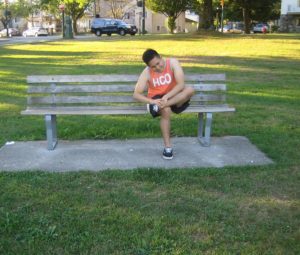Ice skating is a physically challenging sport that can trigger ankle pain. It is important to note that the structure of the lower leg makes it prone to stress and injuries. Additionally, ice skating involves abrupt starts and stops which strains on the feet, ankles and arches.
Spending long hours on the ice can lead to the weakening of the peroneal muscle which makes sprains likely to occur. Engaging in ice skating causes the tibialis anterior muscle that travels down the outside of the shin to shorten.
After skating, the shortened muscle places pressure on the tendon which results to pain at the front region of the ankle, beneath the shinbone and oftentimes in the arches and along the outside of the foot.

Dealing with ankle strains and sprains
The ankle pain that arises after a fall might be an indication of a sprain or strain. A strain involves the tearing or stretching of the ankle tendons or muscles. When it comes to a sprain, the ligaments connecting the ankle bones become torn or stretched.
These injuries are managed using the RICE method. If the individual could not walk more than a few steps, there is difficulty in moving the ankle or there is numbness or redness of the skin, a doctor should be consulted.
Preventive measures
In most cases of ankle pain and related injuries, they can be prevented or alleviated by using properly fitting skates with the right degree of flexibility. The boot should be rigid enough to provide support but not too stiff that proper flexion is disrupted.
Since most skating boots are too rigid, it is recommended that the uppers must bend slightly to average force placed with the hands. Since skate boots do not have adequate arch support, an orthotic might be beneficial.
